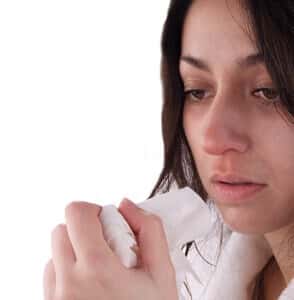
Even if you didn’t go over the river and through the woods to Grandmother’s house in the past few weeks, there is a good chance you did some traveling. That means you almost assuredly were exposed to people with colds or even the flu.
How can you reduce your chances of coming down with sniffles, sneezes, congestion and a sore throat this winter? Ask most public health officials how to avoid catching a cold or the flu and you will probably be told to wash your hands several times a day. That’s not bad advice, but there is a surprising lack of evidence that it works.
Studies of Hand Washing Habits:
One Swedish study tracked 4,365 residents of Stockholm. They were queried about their daily hand-washing routine. It didn’t matter whether people washed their hands two to four times a day, five to nine times or more than 20 times. The authors concluded that habitual hand-washing did not protect people from respiratory tract infections (BMC Infectious Diseases, Sept. 18, 2014).
This is not the only study to come to that conclusion. A review of studies of hand-washing found that it doesn’t work very well to prevent the spread of influenza (Epidemiology and Infection, May, 2014).
Using Hand Sanitizers to Keep from Catching a Cold:
What about hand sanitizers? Are they better than hand-washing? One randomized study compared the number of colds in young adults who used alcohol-based sanitizers every three waking hours to the number suffered by those who were not given hand sanitizers (Clinical Infectious Diseases, May 15, 2012). The study lasted for nine weeks and did not demonstrate any difference in respiratory infections between the two groups.
Don’t Touch Your Face!
One behavioral change that might help but could be difficult to accomplish is to stop touching the face. People rub their eyes, scratch their noses and bite their nails many times a day without even noticing. This might be one way that cold viruses travel from contaminated surfaces to delicate and vulnerable mucus membranes.
Keep Moving:
What else can we do to reduce our chances of catching a cold or flu? Animal research suggests that moderate exercise can strengthen the immune system (Scientific Reports, online, Nov. 6, 2015). Investigators made 14 mice swim for 10 minutes five days a week. Another 14 mice didn’t have to exert themselves during the three-week study. The mice that were exercising had higher levels of inflammation in their muscles. This seems to have activated their immune system because they were better able to resist experimental Staph infection. The lead researcher told The New York Times,
“We strongly believe that long-term, regular exercise can considerably improve the immune defense mechanism…against viral infections such as colds and the flu.”
Helpful Supplements to Boost the Immune Response:
There are also some supplements that may be useful. People who have low levels of vitamin D in their bodies appear to be more susceptible to respiratory infections. Although it is not clear exactly what level of supplementation is best, one study found that vitamin D3 supplements are “a promising intervention” for preventing such infections (BMC Infectious Diseases, May 19, 2014).
You can learn more about this as well as Chinese herbs Astragalus and Andrographis to strengthen immunity in our Guide to Colds, Coughs and the Flu.

